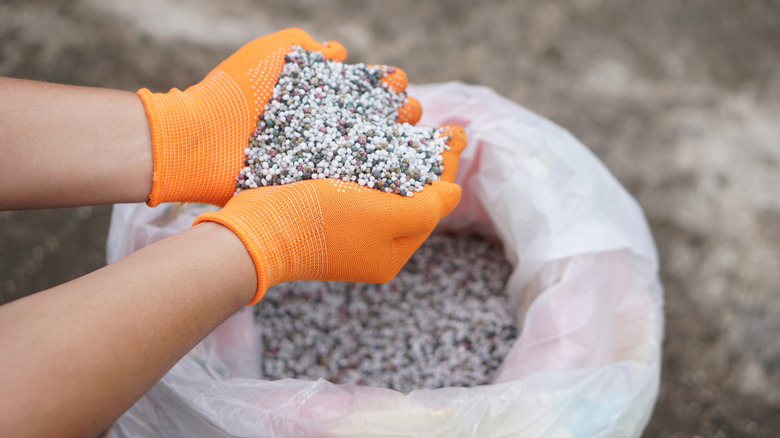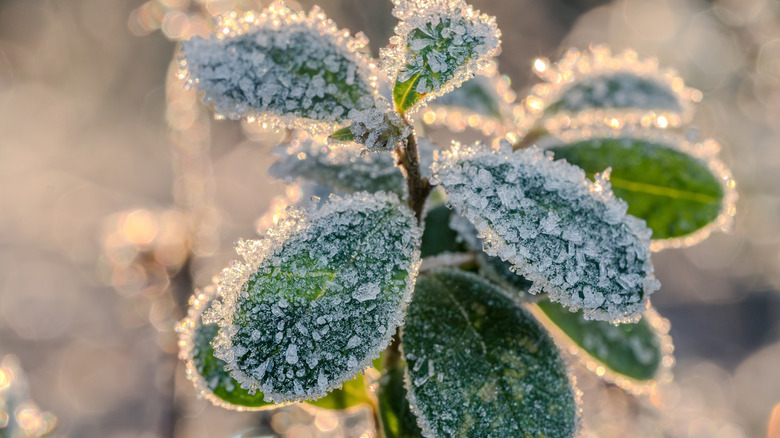Why You Should Think Twice Before Using Leftover Fertilizer To Melt Ice
Whenever winter looms on the horizon, so do snow-covered driveways, making many people wonder if there are any tips and tricks to easily remove ice and snow. While many of these methods surrounding how to more efficiently shovel and de-ice your driveway do work, there is one that is sometimes touted online that you should think twice before trying — using leftover chemical fertilizer to melt ice. Chemical fertilizers that contain high amounts of nitrogen may work to melt ice, but the problem is that the risks of doing so often outweigh the benefits. In fact, it's because of this that using fertilizer as a deicing agent is actually illegal in the state of Maryland. So, what makes something that is often approved to apply to your yard so bad when put on your driveway?
The issue mainly comes down to runoff and the pollution of our waterways. Nitrogen-based fertilizers are approved for application on your lawn in warm weather when the soil can absorb them. However, applying these chemical fertilizers on hard surfaces that are built to funnel standing water into city storm drains, like your driveway or sidewalk, almost guarantees that any fertilizer you put down will end up in your local waterways. While road salt is also considered a problematic pollutant in local waterways, it is often seen as less damaging than chemical fertilizers, which contribute to large dead zones of no life in our lakes, streams, and oceans. Plus, on top of this, using chemical fertilizers as deicers may also be bad for your lawn.
How using fertilizer to melt ice damages plants
For many people who are looking for an alternative to road salt, the problem isn't just its effects on the environment, but how the salt damages their plants and grass around the edge of their driveway. While you may think that fertilizer will be a safe deicer to use near your plants in winter, the opposite is actually true. This is because fertilizers are meant to help plants when they are growing and not when they are in dormancy. Plus, applying too much fertilizer to an area (especially when that area doesn't need it) is harmful to good soil microbes and can even kill your plants and grass.
So, if you want a plant-friendly deicer, what can you do? While they don't work as well as road salt, there are a few natural options you can turn to that are useful on the edge of your driveway or sidewalk near your plants. One option is to add used coffee grounds, which can help to add more traction to icy areas where you don't want to use road salt. Another method calls for white vinegar, which can melt ice when mixed with warm water and works best when applied to your driveway before a snow or ice storm. You can also opt to purchase calcium magnesium acetate (CMA) which is more expensive than road salt, but much more environmentally friendly while still being very effective.

